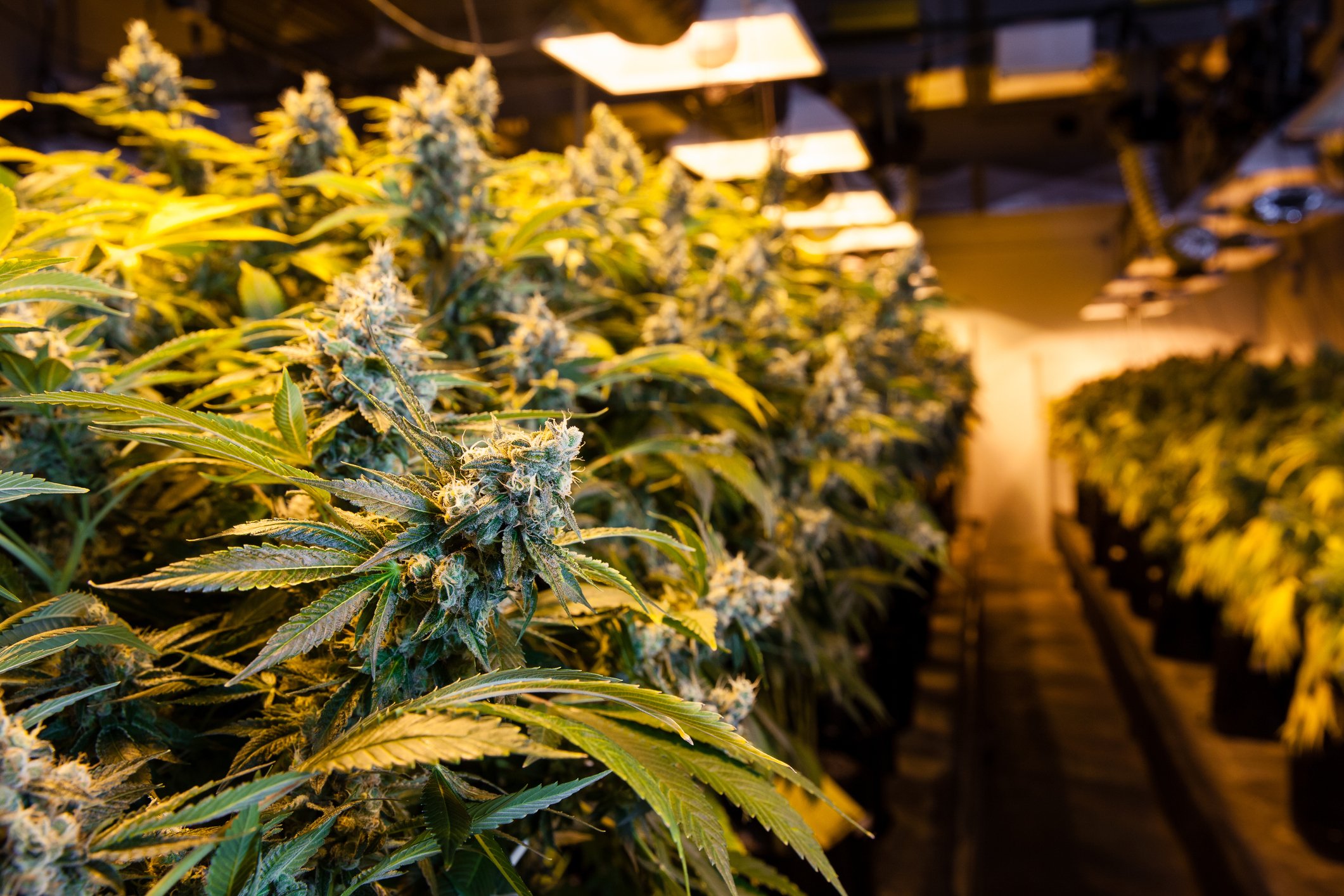In case you missed it, the World Health Organization (WHO) made the announcement that most people were expecting this past Wednesday, March 11: Coronavirus disease 2019 (COVID-19) is officially a pandemic.
The COVID-19 lung-focused illness has cropped up in 110 countries around the world, has been confirmed in close to 114,000 people, and has led to over 4,000 deaths, according to WHO as of March 10. Given COVID-19's higher mortality rate among the elderly and people with compromised immune systems, this has led to seemingly unprecedented global responses at the governmental level, including a complete lockdown in Italy, as well as a halt to college classes, special events, and major gatherings in certain U.S. states.
The thing is, coronavirus isn't just affecting the physical well-being of the world -- it's also wreaking havoc on financial markets, and it has the ability to adversely affect supply chains in a variety of sectors and industries.
For example, you might think the fast-growing marijuana industry would be mostly exempt from coronavirus-induced panic. Unfortunately, that couldn't be further from the truth. Here are four ways that coronavirus could affect the cannabis industry.

Image source: Getty Images.
1. Supply chain disruption
The biggest issue will likely come in the form of supply chain disruption. Although we often think of cannabis in terms of growing and processing the plant within the confines of, say, the United States or Canada, there are a lot of moving parts of the supply chain that originate from China. That's because China is a low-cost producer, which is perfect for the still-nascent pot industry.
For example, cannabis companies rely on China for vaporizer production. Anything tied to vaping is expected to lead all forms of derivatives in terms of sales, but this may not prove the case if China is unable to meet its production commitments. In particular, this could prove to be an issue for KushCo Holdings (KSHB +0.00%), which has generated most of its sales to date from vaporizers. KushCo is also a key supplier of packaging materials, some of which are derived from China. Although KushCo has previously stuck by its healthy sales growth guidance, this may not be the case going forward.
Other supply chain disruptions could involve heating, ventilation, and air conditioning products, as well as LED bulbs. Even though cultivators have typically leaned on high-pressure sodium bulbs for their growing, LED bulbs, such as those provided by Cree (CREE +0.00%), are considerably cheaper over the long run, and they create less heat, which can reduce climate control expenses. The thing is, Cree has a significant LED production operation in China, meaning it could easily be disrupted.

Image source: Getty Images.
2. Trade-show cancellations
As we've witnessed in both Italy and in select U.S. states, sporting events and any sort of large gatherings are being discouraged or outright cancelled indefinitely to mitigate the spread of coronavirus. This will almost certainly include a number of important trade shows for the marijuana industry, which are set to place in the U.S., Canada, and Europe in the coming months.
Marijuana trade shows are a prime time for pot stocks to show off their latest innovative products, as well as network. This is especially true with derivatives, such as edibles, vapes, infused beverages, topicals, and concentrates having recently hit dispensary shelves. However, with the prospect of trade shows being cancelled, it puts certain cannabis stocks in a real bind.
As an example, Aurora Cannabis (ACB 2.96%) is very much in need of a brand-name partnership at the moment and will need a big push from the launch of edibles and vapes to make a dent in its monstrous quarterly operating losses. Aurora's most recent management discussion and analysis suggests that the company's liabilities will total $373.6 million Canadian over the next 12 months, but Aurora had less than half of this amount in cash, cash equivalents, and marketable securities on hand, as of Dec. 31, 2019. The inability to make in-person inroads could prove problematic for the once highflier.

Image source: Getty Images.
3. A significant drop-off in tourism
Another issue with the coronavirus is that it might crush regions that are dependent on tourism to drive growth. A good example here would be Las Vegas, which is relatively reliant on an influx of tourism to driving gaming and hotel revenue, as well as plenty of additional ancillary spending.
Planet 13 Holdings (PLNH.F 3.30%), for instance, has its 112,000-square-foot SuperStore situated just west of the Las Vegas Strip. Planet 13's dispensary complex -- the largest in the country by a long shot -- features a broad selection of marijuana products, as well as a bistro, events center, and consumer-facing processing center. The SuperStore also leans heavily on technology to enhance the experience of its customers.
However, if the spread of COVID-19 significantly reduces travel or tourism to Las Vegas, it's a company like Planet 13 that could feel the effects. Planet 13 will have a new 40,000-square-foot dispensary open in Santa Ana, Calif., just miles from Disneyland, later this year, but the short-term pain from travel disruptions could certainly translate into weaker sales at its flagship store.

Image source: Getty Images.
4. Potential quarantines or select regional lockdowns
Lastly, there's always the possibility that certain countries, regions, states, or cities could go on lockdown, or that more and more people become infected with the coronavirus and are forced to self-quarantine. People who are quarantined may be able to receive cannabis products via delivery in certain areas, but it would be a reasonable assumption that demand would drop if the number of confirmed COVID-19 cases continues to climb.
We're not at this point yet, but it remains an outlier that could disrupt the cannabis industry.


